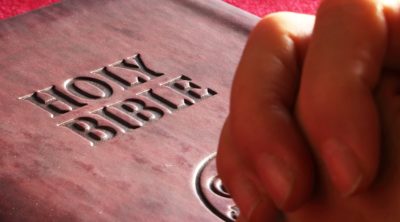
Left eye twitching is a common phenomenon observed in people around the world. However, what is interesting is how this general medical condition has sparked off a number of superstitions.
Eye twitching or the sudden involuntary movement or spasms in the eyelids is a common condition. Although there is an established explanation for these constant or intermittent involuntary muscle twitches, including various medical reasons behind them, over the years, there have been a number of superstitions associated with it.
Apparently, these twitches are nature’s way of warning a person about some impending problem or indicative of some good news on the way. In fact, you would come across different versions of myth associated with eye twitching in different cultures around the world.
Twitching of the left eye is considered to be either a bad or a good omen, depending upon which culture we are referring to. These superstitions take into account the gender and the part of the eye in which the twitching is observed as well. From China to India, here are some of the most popular left eye twitching superstitions out there.
According to Chinese sayings, left eye twitching is associated with the impending arrival of some good fortune or good news. This is opposed to the belief of approaching misfortune on the twitching of the right eye. So while a twitch in the left eye indicates good luck or even a major gold rush, a twitching right eye is considered a bad omen which foretells of bad luck headed your way!
In the case of women, the tables are turned, as a twitching right eye signifies good luck, while a twitching left one is considered a bad omen. People also believe in other eyelid twitching superstitions, where a twitch in the lower left eyelid means you can expect to cry soon, or someone is gossiping about you.
here are some interesting left eye twitching superstitions in the Chinese culture, based on the time of the day in which your eye is twitching.
RAT (11pm to 1am): Meeting with a helpful noble man.
OX (1am to 3am): Worrying times ahead.
TIGER (3am to 5am): A visitor from another city or country.
RABBIT (5am to 7am): Welcome a visitor to your home today.
DRAGON (7am to 9am): A visitor from another city or country.
SNAKE (9am to 11am): Expect an invitation to an important dinner party.
HORSE (11am to 1pm): Expect an invitation to an important dinner party.
SHEEP (1pm to 3pm): A financially auspicious event will happen.
MONKEY (3pm to 5pm): Loss of money or physical harm in some way is expected.
ROOSTER (5pm to 7pm): Someone helpful is coming to see you soon.
DOG (7pm to 9pm): Welcome a visitor to your home today.
BOAR (9pm to 11pm): Welcome a visitor to your home today.
Indian Left Eye Twitching Superstition
In India, the superstition is the reverse of the Chinese version. It is again an old belief that if your right eye twitches, you are likely to hear good news, gain some money, or enjoy certain success. On the other hand, left eye twitching is considered inauspicious. At times, eyelid twitching can also be based on the gender as well. While left eye twitching is considered good for women, it might be a bad sign for men. Moreover, twitching of the left eye pupil can indicate good luck.
With the change in the anatomy of the eye, different superstitions can be observed:
Left under eye – Expenses
Pupil of the left eye – Good luck
Left eyebrow – Birth of child and good news
In certain parts of Africa, including Cameroon, twitching of the lower eyelid signals that you will soon be shedding tears. When the upper eyelid twitches, it’s a sign that you will have an unexpected visitor. Nigerians also follow the Indian version of the left eye twitching superstition, and consider it to be a sign of bad luck.
In Hawaii, twitching in the left eye can signal the arrival of a stranger. In addition to this belief, there are some other versions of the superstition, where a constant twitching of the left eye might signal a demise in the family, and the twitching of the right may signal an impending birth.
Medical Causes of Eye Twitching
Although these superstitions might sound extremely interesting and make for a good read, there is a scientific reason behind involuntary eye spasms. While the fluttering sensation, sometimes felt in and around the eyelids, can certainly be irritating, it may not be a serious health issue. However, those who suffer from frequently-recurring episodes of contraction of the eyelid muscles, must seek medical attention in order to rule out the possibility of an underlying condition involving the optical nerves or the optical muscles. Involuntary eye twitching, which is also referred to as eye muscle spasm, can be attributed to an eye problem known as benign essential blepharospasm. The condition is actually caused by uncontrollable contractions of the muscles around the eyelids. This chronic, uncontrollable blinking of the eyes could be the result of dry eyes, conjunctivitis, or light sensitivity. Other factors that could lead to twitching in the eyes include:
- Lack of sleep
- Extreme stress and fatigue
- Vision problems
- Pollution
- Inflammation of the cornea or eyelids
- Excessive intake of alcohol and caffeine
- Magnesium or vitamin deficiency
- Eye allergies
- Neurological disorders like basal ganglia
Eyelid twitching could also be attributed to neurological disorders like epilepsy, Parkinson’s disease, Tourette syndrome, or certain eye allergies and injuries. If it is an extreme condition with persistent left eye twitching for more than a week, along with facial spasms and inflammation of eyelids, you will need to consult a doctor who might prescribe oral medications or certain eye drops. In certain cases, myectomy or surgery for treating blinking eyes may have to be performed to cure the excessive twitching of the eyes. Reduce the strain on the eyes by getting enough sleep and washing your eyes regularly.
Disclaimer: This Mysticurious article is for informative purposes only. If you experience any twitching or discomfort in the eyes, make sure you seek medical help.






